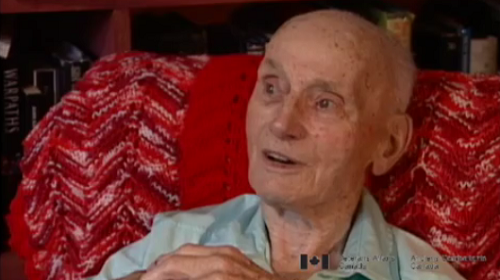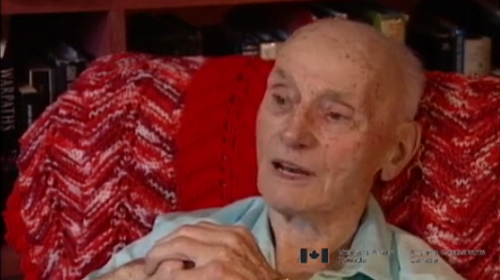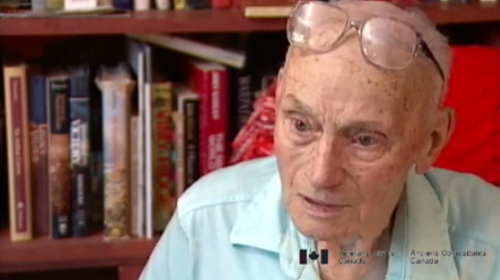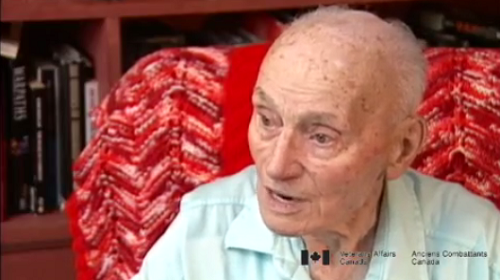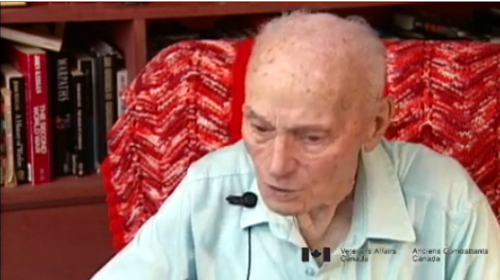Creeping Barrage At Vimy Ridge
Heroes Remember
Creeping Barrage At Vimy Ridge
Transcript
You leaned into the barrage.
In other words, you were taking some
chances if there was any shorts well we got
casualties in front of our own artillery
but it couldn't be helped.
But the idea was the enemy had his
head down in these dugouts or in the
bottom of the trench and we got there
right on top of the shell fire.
The shell fire left at exactly at a certain time, exactly.
No split minutes and then lifted again
it could be fifty to eighty yards but
each of those lines are marked that is where
it changes and you just waited
until it moved again.
That was a beautiful job done.
In other words, the Canadian Vimy Ridge
taught the British how to fight a battle with
a minimum amount of casualties
to the maximum of territory.
Description
Mr. Henley gives an excellent description of the logistics and technique of the creeping barrage and its overwhelming success at Vimy Ridge.
Roy Henley
Roy Henley was born in London, Ontario on September 29, 1898. After enlisting in Toronto in 1916 with the 166th Queens Own Rifles, he was discharged with suspected tuberculosis. Mr. Henley re-enlisted, sailed to England aboard the horse transport SS Welshman, and joined the Quebec Regiment. Mr. Henley's recollections are detailed, sometimes graphic and occasionally humorous. His experiences spanned many battles; the Somme, Vimy Ridge, Passchendaele, Cambrai and Arras.
Meta Data
- Medium:
- Video
- Owner:
- Veterans Affairs Canada
- Duration:
- 1:26
- Person Interviewed:
- Roy Henley
- War, Conflict or Mission:
- First World War
- Battle/Campaign:
- Vimy
- Branch:
- Army
- Rank:
- Sergeant
Related Videos
- Date modified:



